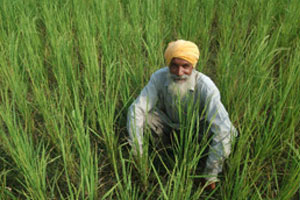
Free power to each pumping equipment will cost govt Rs 5,000
20 lakh pumpsets are in operation throughout the State
Another 2 lakh pumpsets installed without permits
About 15-20 million units of power requires a day
Hyderabad: rocked by a severe energy crisis, the government Telangana has reportedly decided not to provide free energy to rice farmers using pumping equipment during the rabi season starting from the last week of November.
The Government has instructed officials of the Department of Agriculture to undertake a massive campaign in villages to educate farmers on the energy crisis. Department officials have been instructed to explain the farmers about the burden of government would face if the rice is grown during the rabi season. They were instructed to encourage farmers to increase millet and pulses instead of paddy.
The financial burden for the government because of the free energy for pumping equipment for rice during rabi cost around Rs 5,000 to the state treasury. A senior official of the Department of Agriculture told The Hans India that energy demand is expected to increase from the current 125 to 130 mu mu if 20 lakh pumpsets are put into use during the rabi season for rice. Others 2 lakh pumpsets are installed without approvals utilities. Rice would require about 15-20 mu mu per day during the rabi season. Crops require more water since mid-February, when temperatures begin to rise. This would burden for the government to meet energy demand, the official said.
Chief Minister K Chandrashekar Rao had recently asked farmers to go for harvesting crops dry rice instead that the government was unable to meet the growing demand for energy. He urged farmers to cooperate with the government.
Telangana, which is reeling under severe energy crisis, struggled to provide free energy for kharif crops. Although the government made every effort I could not meet the demand for energy. Therefore to avoid such a new problem that could have political implications, the agriculture department has stepped in and is trying to educate farmers on the optimal use of energy for irrigation.






















